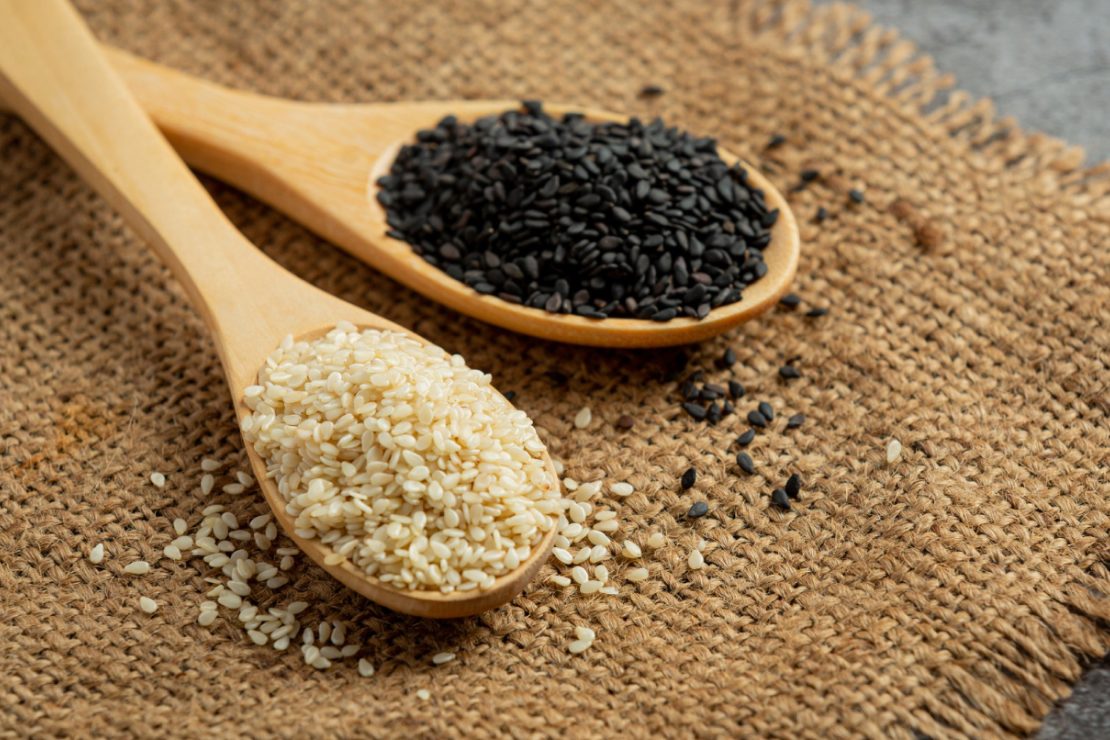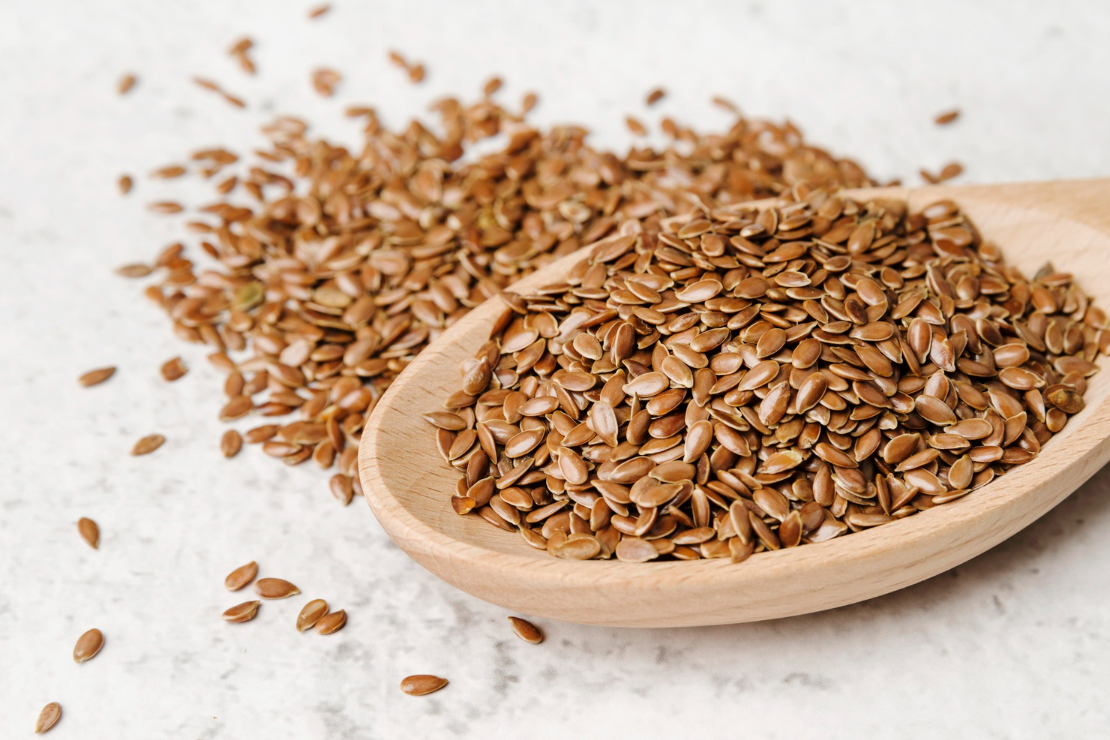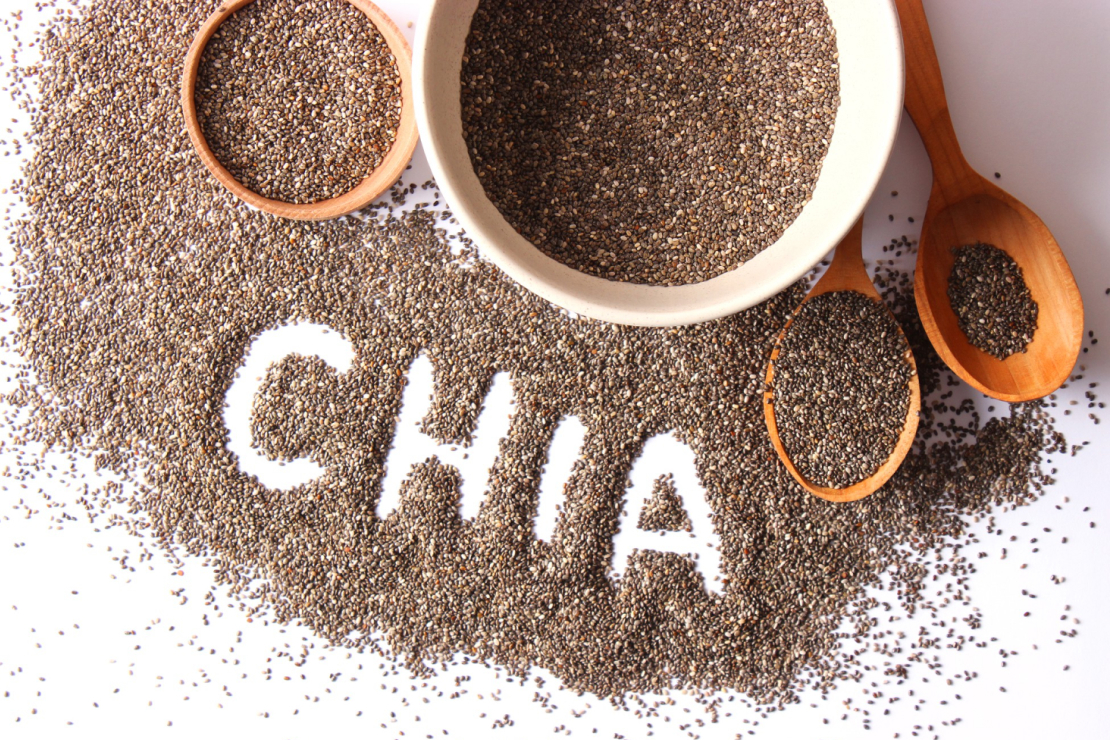Building Better Bones: The Unexpected Role of Sesame Seeds in Skeletal Health
Discover how tiny sesame seeds, packed with calcium, magnesium, and other bone-supporting nutrients, can play a significant role in maintaining strong, healthy bones and preventing osteoporosis. Learn how to easily incorporate this ancient superfood into your diet.

Table of Content
When we think about bone health, calcium and dairy products often come to mind first. While these are undoubtedly crucial, a holistic approach to building and maintaining strong bones involves a wider array of nutrients. Hidden within the culinary traditions of many cultures, a tiny, unassuming seed has been quietly contributing to skeletal strength for millennia: the sesame seed. Often celebrated for its rich, nutty flavor and versatility in dishes, sesame seeds are an unexpected powerhouse of bone-supporting minerals that deserve a spotlight in your diet.
This article will delve into the surprising role of sesame seeds in promoting robust bone health, exploring the science behind their potent nutrient profile and how they can help prevent conditions like osteoporosis. We'll uncover their key benefits, provide practical ways to incorporate them into your daily meals, and highlight how Macro Tracking AI can assist you in optimizing your intake for a stronger, healthier skeletal system.
The Bone-Building Power: Sesame Seeds' Rich Nutrient Profile
Sesame seeds are packed with a synergistic blend of vitamins and minerals that are essential for bone formation and maintenance:
- Calcium: Perhaps the most well-known bone mineral, calcium is the primary building block of bones. Sesame seeds, particularly unhulled varieties, are an excellent plant-based source of calcium, offering a significant amount per serving.
- Magnesium: This vital mineral works hand-in-hand with calcium, playing a crucial role in calcium absorption and bone mineralization. Magnesium deficiency can impair bone growth and increase the risk of osteoporosis.
- Phosphorus: Another key component of bone structure, phosphorus is abundant in sesame seeds. It combines with calcium to form hydroxyapatite, the main mineral complex of bones and teeth.
- Zinc: Essential for bone formation, zinc is involved in the activity of osteoblasts (cells that build bone tissue) and helps regulate bone turnover.
- Copper: This trace mineral is important for collagen formation, a protein that provides the flexible framework for bones.
- Manganese: Involved in the formation of bone cartilage and connective tissue, manganese is another critical nutrient found in sesame seeds.
- Lignans (Sesamin and Sesamolin): These unique compounds found in sesame seeds have antioxidant and anti-inflammatory properties. Some research suggests they may also play a role in bone health by modulating bone metabolism and reducing oxidative stress on bone cells.
Key Benefits: How Sesame Seeds Contribute to Skeletal Health
Regular consumption of sesame seeds can offer several advantages for your bones:
Osteoporosis Prevention
By providing a rich source of essential bone-building minerals like calcium, magnesium, and phosphorus, sesame seeds contribute to maintaining bone density and strength, thereby reducing the risk of osteoporosis, especially in postmenopausal women.
Enhanced Bone Mineral Density
The synergistic action of various minerals in sesame seeds supports optimal bone mineralization, helping to improve and preserve bone mineral density throughout life.
Anti-inflammatory Support for Joints
While primarily beneficial for bones, the anti-inflammatory properties of sesame lignans can also contribute to overall joint health, which is intrinsically linked to skeletal well-being.
Plant-Based Mineral Source
For individuals who are lactose intolerant, vegan, or simply looking to diversify their calcium sources, sesame seeds offer an excellent plant-based alternative to dairy for meeting daily mineral requirements.
How to Incorporate Sesame Seeds into Your Daily Routine
Sesame seeds are incredibly versatile and can be easily integrated into a variety of dishes:
- Sprinkle Them: Toast sesame seeds lightly to enhance their flavor, then sprinkle them over salads, stir-fries, roasted vegetables, or avocado toast.
- Tahini: This paste made from ground sesame seeds is a staple in Middle Eastern cuisine. Use it in hummus, salad dressings, sauces, or as a spread on toast.
- Baking: Add sesame seeds to bread dough, crackers, muffins, or energy bars for a nutty flavor and nutritional boost.
- Coating: Use them as a coating for chicken, fish, or tofu before baking or pan-frying.
- Smoothies: A tablespoon of tahini or a sprinkle of sesame seeds can add creaminess and nutrients to your morning smoothie.
- Garnish: Use them as a garnish for soups, noodle dishes, or even desserts.
For maximum calcium intake, opt for unhulled sesame seeds, as most of the calcium is found in the hull.
Integrating Sesame Seeds with Macro Tracking AI for Optimal Bone Health
To effectively leverage sesame seeds for bone health, it's beneficial to monitor your overall nutrient intake. Macro Tracking AI can be a powerful tool:
- Precise Mineral Tracking: Log your sesame seed consumption to accurately track your intake of calcium, magnesium, phosphorus, and other vital minerals. This helps ensure you're meeting your daily requirements for bone health.
- Holistic Nutritional Overview: Macro Tracking AI provides a comprehensive view of your diet, allowing you to see how sesame seeds fit into your overall macronutrient and micronutrient profile, ensuring a balanced intake of all nutrients necessary for strong bones.
- Identify Deficiencies: By tracking your food, you can identify any potential gaps in your mineral intake and make informed adjustments to your diet, incorporating more bone-supporting foods alongside sesame seeds.
- Personalized Dietary Adjustments: The app's insights can help you create meal plans that are rich in bone-healthy foods, tailoring your diet to your specific needs and goals for skeletal strength.
Potential Side Effects and Precautions
Sesame seeds are generally well-tolerated, but some points to consider:
- Allergies: Sesame is a common allergen. Individuals with sesame allergies should avoid them completely.
- Calorie Density: Like all seeds, sesame seeds are calorie-dense. Consume in moderation, especially if managing weight.
- Oxalates: Sesame seeds contain oxalates, which can interfere with calcium absorption in very high amounts. However, for most people, this is not a concern with typical consumption.
Sesame seeds, though small, offer a significant contribution to building and maintaining strong, healthy bones. Their rich concentration of calcium, magnesium, phosphorus, and other essential minerals makes them an invaluable addition to any diet focused on skeletal health. By incorporating these ancient superfoods into your daily routine and utilizing the precise tracking capabilities of Macro Tracking AI, you can take a proactive and delicious step towards preventing osteoporosis and ensuring your bones remain robust for years to come. Embrace the unexpected power of sesame seeds for a foundation of lasting strength.
Start Your Health Journey Today
Download Macro Tracking AI and take control of your nutrition with the power of artificial intelligence.
Download on App Store

